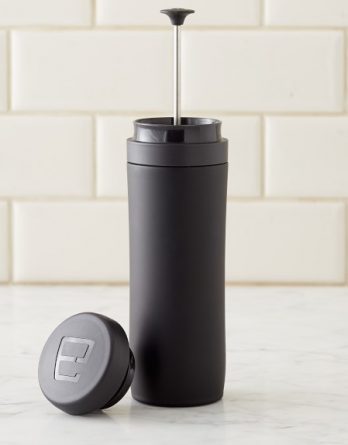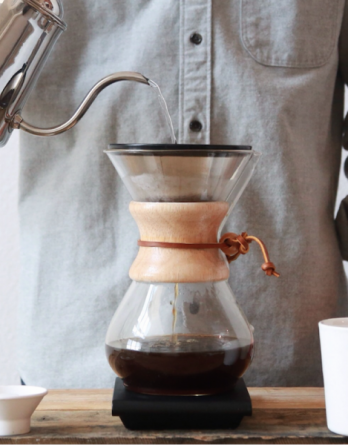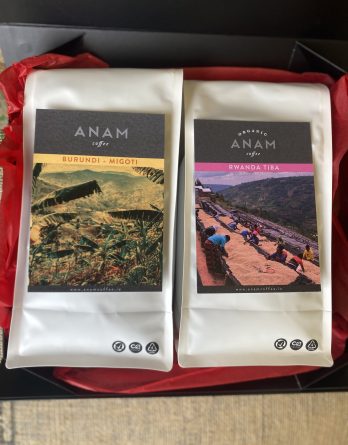Burundi – Izuba
€15.00 – €41.50
Izuba meaning “sun” in Kirundi, is located in Runinya, Kabarore Commune, of Kayanza Province. The Izuba washing station is set close to a nearby river, providing a vital and regular freshwater source for coffee processing. The station is managed by Ntama Appolinaire, who works alongside Prosper Merrimee, the operational manager of Raw Material Burundi. Izuba employs 2 full-time staff and around 250 seasonal workers, who are all local to the station. Izuba is situated near to the Kibira national park, where the soil and climate are paired well for fantastic coffee production.
Kigeri, Ryamukona, and Mugoyi are the three hills (collines) surrounding Izuba and the three areas in which coffee is collected or delivered from ranging from 1500 to 1700m above sea level. Each volume of cherry sold to Izuba is recorded by producer and hillside, showing the minute variances in profile from locations surrounding the washing station.
Processing
Izuba currently produces washed coffees and is actively developing both honey and natural processed lots, which will become larger in volume this year. Washed coffees are fermented for around 12 hours and dried for an average of 20 days.
Potato defect is tackled firstly through very thorough floating of cherries and then primarily by extensive wet sorting (this is the hand sorting that takes place under cover when the coffee has just been pulped and is still wet- the potato defect beans are most visible at this point). Two new additional wet sorting sheds were added in 2020 to further improve this process. Once the coffee has been fully processed, the remaining coffee pulp is turned into a natural fertiliser as it degrades. When ready, it is distributed to local farmers to add nutrients to their soil.
SOCIAL SUSTAINABILITY
The station aims to provide premiums where possible to not only the farmers but the station staff also. Employees this season were paid 25% higher than local stations; 33% more than the national average. Last year, almost none of the households around Izuba washing station had health insurance. In Burundi this season, our trading partner, Raw Material have focussed on ensuring all families delivering cherries to us receive full health insurance. This initiative was revealed as the most effective and desired thing we could do from a long list of possible activities following interviews with the community.
Tasting Notes : Round creamy body, milk chocolate and pecan nut
Arabica Variety: Red Bourbon
Harvest Period: March – June
Milling Process: Fully washed & dried on African beds
| Weight | N/A |
|---|
Raw Material are a preferred green bean partner we started to work with from 2024. A non-profit organisation, Raw Material was founded to ensure specialty coffee meets its potential in becoming a solution to the issues facing our industry, not a further contributor to the cycle of debt and disadvantage that many producers have faced over generations. This is our first coffee from them and its a great example of the incredible work Raw Material do.
The team work as service providers to many marginalised producing communities with the promise of maximising income whilst improving coffee quality, yields and community initiatives.
Website : https://www.rawmaterial.coffee/
Socials : https://www.instagram.com/rawmaterial.coffee/
They work deeply across five countries of origin: Burundi, Rwanda, Mexico, Colombia and Timor Leste. They help Anam Coffee specifically with the provision of our Burundian and Colombian coffees – we love what they do because, like us, their work is focused on maximum impact. This means that they do not search for the best coffees in the world but rather, for the communities they can work with to build systems that produce high quality coffee connected to a more stable marketplace. It also means they are driven by the promise of impact, building their strategy around the potential to improve the people, places and systems of the coffee supply chain.
For Raw Material, impact must be economic, social and environmental. Their model focuses on economic freedom for people working in coffee through increasing prices, income diversification and more timely payments. Socially, they seek to contribute to the sharing of knowledge across the supply chain and environmentally they work to promote responsible practices in growing and harvesting. These outcomes are measured both on an individual household and community level.














